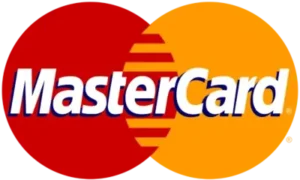Understanding the differences between seed keywords, short-tail keywords, and long-tail keywords is crucial in SEO and digital marketing, as each plays a distinct role in content strategy, search engine optimization, and keyword research. Here’s a detailed comparison:
Seed Keywords / Head Keywords
Definition:
Seed keywords are the foundation of keyword research. They are typically one or two words that broadly define a product, service, or topic. Seed keywords are very general and are used as starting points to generate more specific keywords.
Characteristics:
- Very broad and often highly competitive.
- Used to brainstorm longer and more specific keyword phrases.
- Do not convey much about user intent due to their broad nature.
Example:
For a company selling various types of footwear, a seed keyword could simply be “shoes.”
Short-Tail Keywords
Definition:
Short-tail keywords, also known as head keywords, are slightly longer phrases than seed keywords, typically containing two to three words. These keywords are more specific than seed keywords but still maintain high competition and search volume.
Characteristics:
- Slightly more specific than seed keywords but still quite broad.
- Generally have high search volumes and high competition.
- Often difficult to rank for due to their broad appeal.
Example:
Expanding on the seed keyword “shoes,” a short-tail keyword might be “running shoes.”
Long-Tail Keywords
Definition:
Long-tail keywords are more extended and detailed phrases, usually containing three or more words. They are highly specific and express clear intent, making them less competitive and typically associated with higher conversion rates.
Characteristics:
- Very specific and often indicate a clear intent.
- Lower search volumes but higher conversion rates due to specificity.
- Less competitive, making it easier for new or niche websites to rank.
Example:
Building further on the short-tail keyword “running shoes,” a long-tail keyword could be “women’s waterproof trail running shoes.”
Comparison and Usage in SEO
Seed Keywords vs. Short-Tail Keywords:
Seed and short-tail keywords are often used interchangeably, but the key difference is the slight increase in specificity and length in short-tail keywords. Both are useful for SEO as they help define the broader context of content and are excellent for driving high volumes of traffic, though they require significant SEO efforts to rank well due to their high competition.
Short-Tail Keywords vs. Long-Tail Keywords:
Short-tail keywords bridge the gap between broad, competitive searches and the highly specific, lower competition searches typically targeted with long-tail keywords. Long-tail keywords, with their clear user intent, are crucial for targeting niche demographics and are especially beneficial for conversion rate optimization. They are less competitive and allow smaller or specialized businesses to find their place in the search rankings.
Strategic Application:
Seed Keywords: Start with these to define the broad topics of your content and services.
Short-Tail Keywords: Use these to build a solid traffic foundation and compete in larger markets.
Long-Tail Keywords: Implement these to capture targeted traffic with higher conversion potentials, ideal for specific product features, detailed inquiries, or localized content.
By strategically incorporating seed keywords, short-tail keywords, and long-tail keywords into your content and SEO strategies, you can effectively cover a broad spectrum of search demand, from high volume, competitive searches to niche, specific queries that are more likely to convert.













